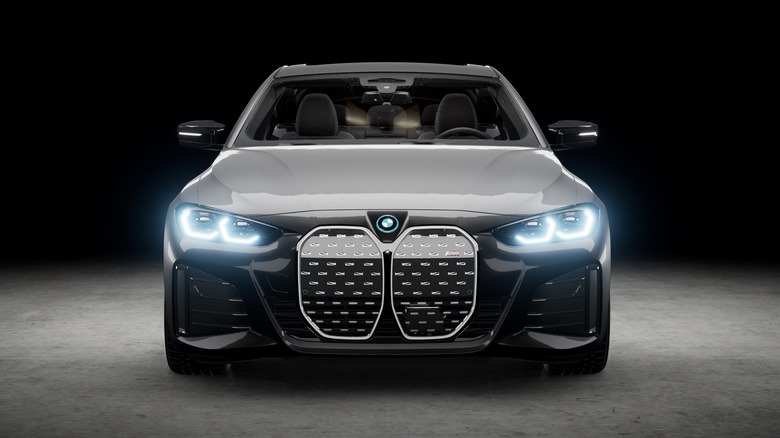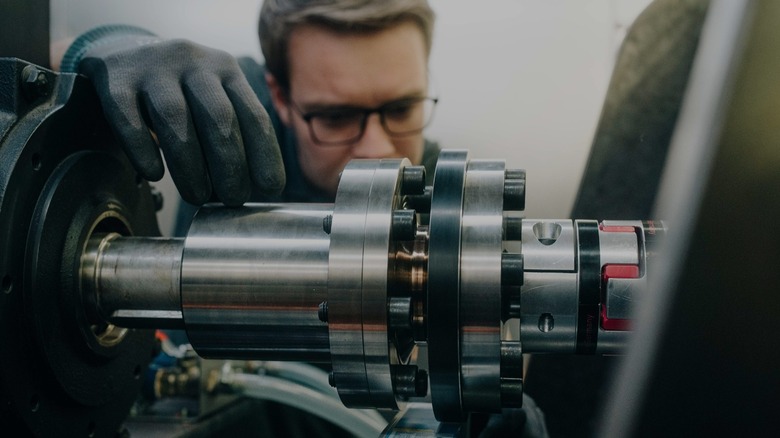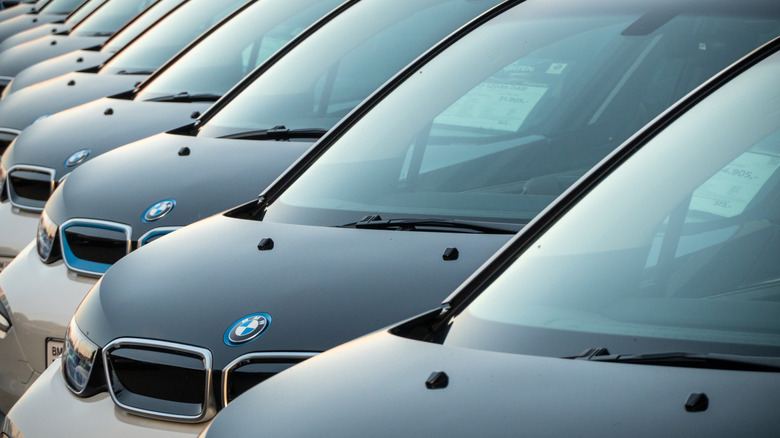BMW Is Testing In-Wheel Motors That Could Give Sports Cars A Future Beyond Gas Engines
Earlier this month, BMW was spotted testing a new all-electric sports coupe at the company's R&D base in Bavaria. This car is reportedly based on the company's fresh Neue Klasse platform, which was introduced not too long ago. The striking looks of the vehicle aside, one thing that caught everyone's attention was the absence of the traditional brake pads on the hub. Instead, the car had what appeared to be individual hub-mounted electric motors.
Incidentally, this test mule was caught in action a little over one year after BMW made a $16.1M investment into a startup called DeepDrive. This company has been in the news for developing advanced hub-mounted electric motors, a technology that claims to extend the range and efficiency of electric vehicles.
Today, BMW confirmed that they were, indeed, pilot testing a car that featured DeepDrive's new electric motor technology. The German automotive giant also added that it is expanding the scope of the program and that it plans to test more cars featuring DeepDrive's new electric motor technology.
BMW's current plan is to install different variants of DeepDrive's hub mounted electric motors on a handful of BMW models, following which the company will test the performance and handling of these motors. The goal, indeed, seems to be to perfect the technology before it is good enough to be deployed on the company's ever-expanding range of electric vehicles.
How does DeepDrive's EV motors work?
According to BMW, DeepDrive's hub mounted electric motors work very differently from conventional motors. While electric motors on traditional EVs feature a stator that moves either an internal or external rotor at any given time, DeepDrive's technology features a dual-rotor concept.
This lets the stator drive both the internal and external rotors simultaneously. This technology essentially lets BMW (or any carmaker adopting the technology) implement an in-wheel drive system. In this system, each of the individual wheels is powered by a separate hub motor. What makes this technology more interesting is the fact that it can also be used with a traditional centralized drive system used by most EVs of today.
BMW claims several advantages of using DeepDrive's hub mounted electric motors over traditional ones. To begin with, these motors are compact, lighter, and more energy efficient than traditional motors. The more straightforward design also makes them less expensive to manufacture. These motors are also highly scalable, which means they can be deployed on vehicles of various kinds, ranging from sports cars to pickup trucks.
DeepDrive not only expects to bring its hub mounted motor technology to a production car soon, but is also hoping that more EV makers collaborate with them for integrating this technology on their next-gen EVs. Given that BMW's first test mule featuring these motors was a sports car, chances are, we may see that car in a production avatar in the future. It could even appear on one of BMW's newer electric SUVs.
A closer look at DeepDrive's electric motors
While we are yet to witness EVs featuring DeepDrive's hub-mounted electric motors, the company has conceptualized three different electric wheel hub motors that target different segments.
The entry-level model called the DeepDrive RM 1500, is designed for compact and mid-size EVs. It measures 19 inches across, develops 1500 Nm of torque (1106 lb-ft), and has 150kW of peak power while weighing just 32 kg. Then, there is the mid-range model called the RM 1800, which makes 1800 Nm of torque (1327 lb-ft) and can generate 160 kW of peak power. It's marginally heavier than the RM1500, weighing 35 kg, but still lighter than traditional electric motors by a fair margin.
DeepDrive's current top-end model is the RM 2400, which claims to generate 2400 Nm of torque (1770 lb-ft) and has 250kW of peak power. This motor weighs 37 kg, which is relatively light compared to modern-day electric motors. The RM2400 is primarily targeted at performance vehicles, which will almost certainly include sports cars.
All of Deep Drive's wheel hub motors claim to be up to 20% energy efficient compared to traditional electric motors while also being less expensive to own and maintain, bringing down the overall cost of ownership.


